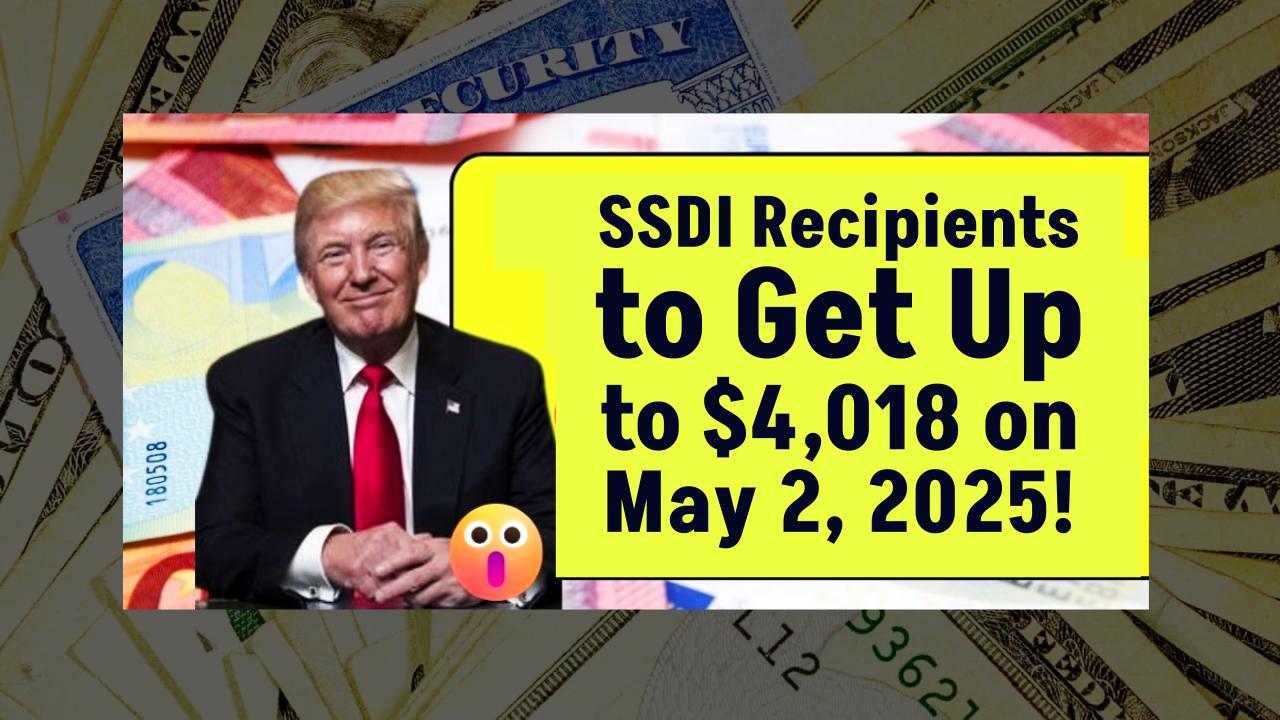Social Security 2025: How to Unlock an Extra $1,071 Monthly — What Every Retiree Must Know
Social Security 2025: If you’re wondering how the changes in Social Security 2025 can impact your retirement income, you’re not alone. Thanks to the Social Security Fairness Act, many retirees—especially public sector employees—now have a real opportunity to increase their monthly benefits by up to $1,071.

Whether you’re planning to retire soon or you’re already receiving benefits, understanding these new updates could mean thousands of extra dollars every year. In this article, we’ll break everything down in simple terms, offering practical steps to help you get the maximum benefits you deserve.
Social Security 2025
| Key Point | Details |
|---|---|
| Law Change | Repeal of Windfall Elimination Provision (WEP) and Government Pension Offset (GPO) through the Social Security Fairness Act (January 2025). |
| Benefit Increase | Up to $1,071 extra per month for eligible retirees. |
| Cost-of-Living Adjustment (COLA) | 2.5% increase in 2025. |
| Eligibility | Public sector retirees impacted by WEP/GPO, with at least 40 work credits. |
| Retroactive Payments | Lump sums averaging $6,710, dating back to January 2024. |
| Official Info | Social Security Administration Website |
The changes to Social Security in 2025 represent a significant win for many retirees, especially those who spent their careers in public service. With the repeal of WEP and GPO and a 2.5% COLA, eligible retirees could see their monthly income increase by up to $1,071 and even receive retroactive payments. It’s important to review your eligibility, update your records, and claim your rightful benefits to secure your financial future.
Understanding the Big Change: Repeal of WEP and GPO
For decades, two confusing rules—WEP and GPO—reduced Social Security benefits for people who worked in public sector jobs (like teachers, firefighters, and police officers) and also earned pensions from those jobs.
The Windfall Elimination Provision (WEP) lowered retirement benefits, while the Government Pension Offset (GPO) reduced spousal or survivor benefits. These rules often cut monthly Social Security checks by hundreds of dollars.
As of January 2025, the Social Security Fairness Act repealed both WEP and GPO (source). That means if you were previously affected, you might now receive your full benefits — without unfair reductions.
What’s the Role of the 2025 COLA?
Each year, Social Security adjusts benefits to keep up with inflation through a Cost-of-Living Adjustment (COLA). In 2025, the COLA is 2.5% (source).
While the average Social Security beneficiary will see about a $49 per month increase, retirees benefiting from the repeal of WEP and GPO could see up to $1,071 added to their checks.
Eligibility Criteria: Who Qualifies?
To qualify for the increased benefits:
- Public Sector Employment: You worked in a job where you didn’t pay into Social Security and were previously affected by WEP or GPO (source).
- 40 Work Credits: You earned enough Social Security work credits (at least 40 credits, or roughly 10 years of work) (official SSA guide).
- U.S. Citizenship or Permanent Residency: You must be a legal citizen or resident.
- Accurate Records: Your earnings and work history must be up to date with the Social Security Administration (SSA).
Tip: Log into your My Social Security account to review and update your information.
Retroactive Payments: Get Ready for a Big Check
Did you retire before 2025? You may be entitled to retroactive payments dating back to January 2024.
According to The Washington Post, by March 2025, more than $7.5 billion had been distributed to about 1.1 million retirees, with average lump sums around $6,710.
Many eligible retirees could see a one-time large payment deposited directly into their bank accounts.
Payment Schedule: When Will You Get Paid?
Social Security benefits are typically paid based on your birth date (source):
- Birth dates 1st–10th: Paid on the second Wednesday of the month.
- Birth dates 11th–20th: Paid on the third Wednesday of the month.
- Birth dates 21st–31st: Paid on the fourth Wednesday of the month.
If you are eligible for the WEP/GPO repeal adjustment, your increased payment should have started in April 2025.
Social Security 2025: How to Verify and Claim Your Higher Benefits?
Here’s how to make sure you get your rightful Social Security increase:
- Review Your SSA Account: Log in to My Social Security and verify your earnings and benefits estimate.
- Look for SSA Notifications: Check your mail and email for updates from the Social Security Administration.
- Contact the SSA if Necessary: If you believe you qualify but haven’t received any communication, call 1-800-772-1213 or visit a local SSA office.
- Prepare Your Documents: Keep records of your work history, pension information, and previous communications with SSA ready for verification.
H-1B Visa Updates 2025: New Rules, Application Tips, and Critical Highlights Explained
Massive $2,900 Social Security Payouts Dropping Soon — Here’s When You’ll Get Paid
Up to $2,319 in May SNAP Benefits for 5-Member Households – Check Payment Dates and Eligibility!
FAQs on Social Security 2025
1. What is the Social Security Fairness Act of 2025?
The Social Security Fairness Act repealed the Windfall Elimination Provision (WEP) and Government Pension Offset (GPO), restoring full Social Security benefits to many public sector retirees.
2. Who benefits the most from the repeal of WEP and GPO?
Retirees from public sector jobs such as teachers, firefighters, police officers, and federal employees who earned pensions and paid into Social Security stand to benefit the most.
3. How can I find out if I qualify for a retroactive payment?
Log into your My Social Security account or contact the SSA directly to confirm if you are eligible for retroactive benefits.
4. Are retroactive Social Security payments taxable?
Yes. Retroactive lump-sum Social Security payments are generally considered taxable income. Consult a tax advisor for personalized advice.
5. Can I receive the increased benefits if I am still working?
Yes, you can. However, if you are below full retirement age, there are limits on how much you can earn before it affects your Social Security benefits.








